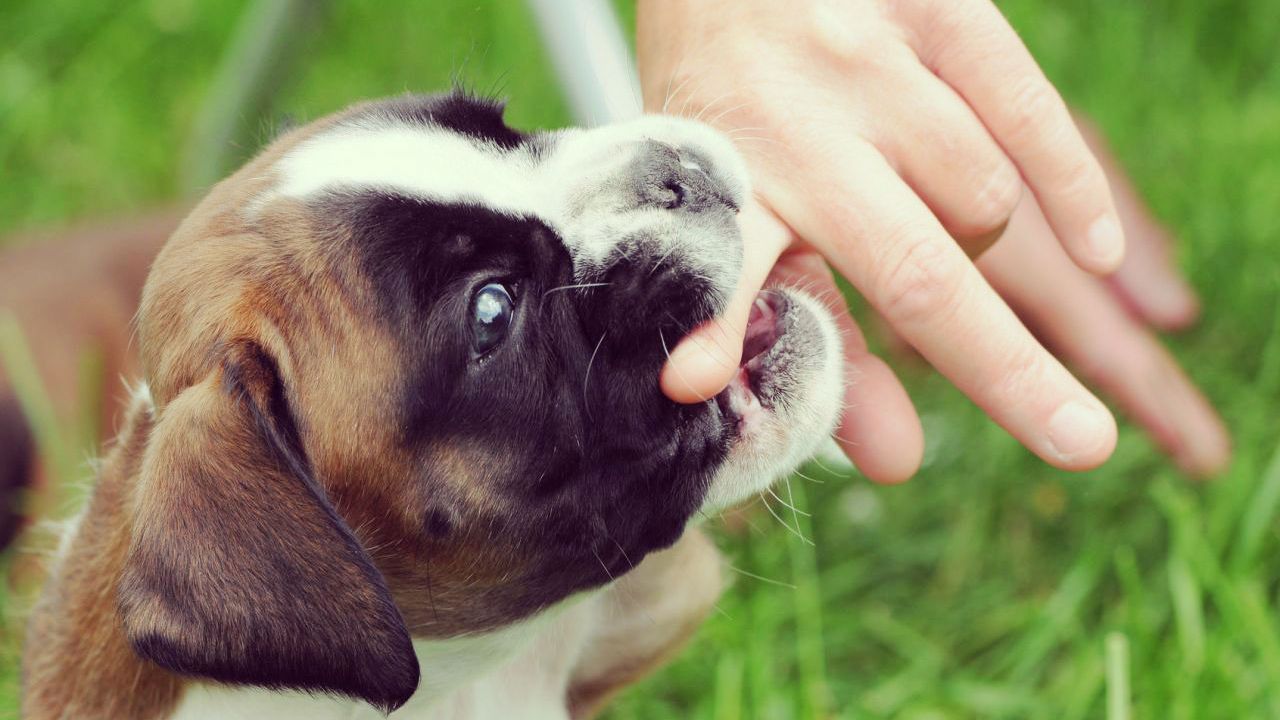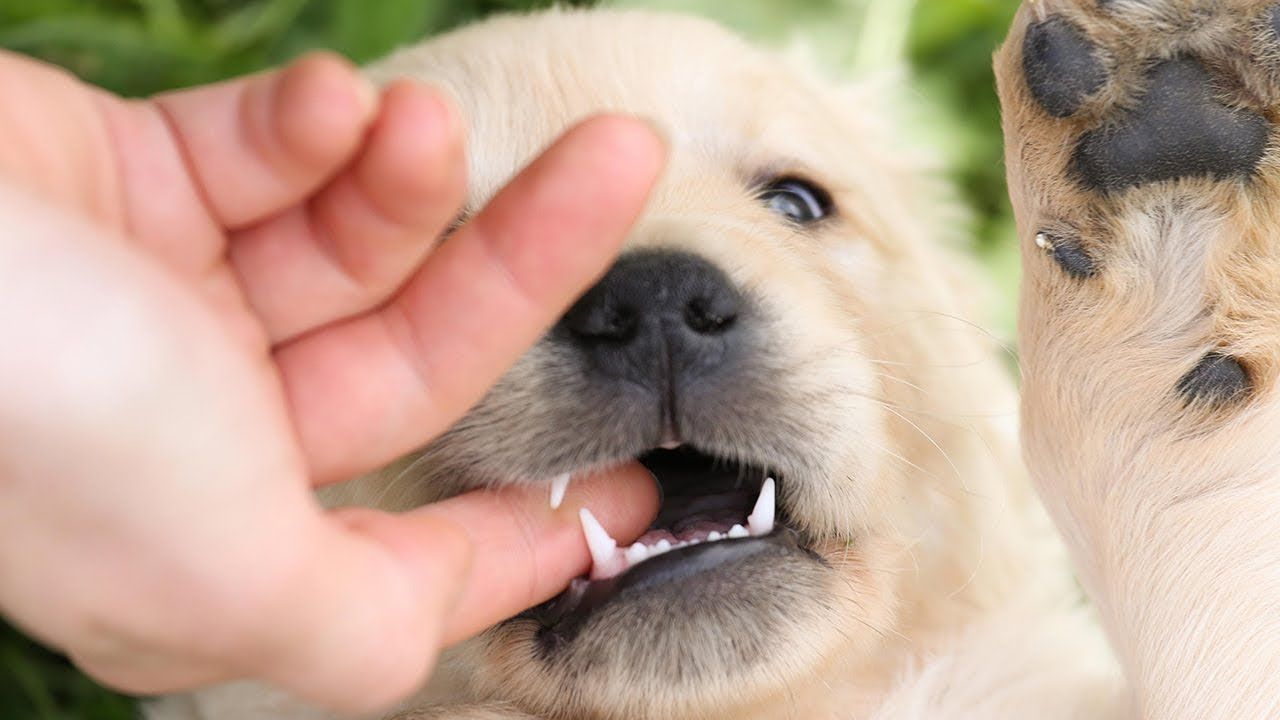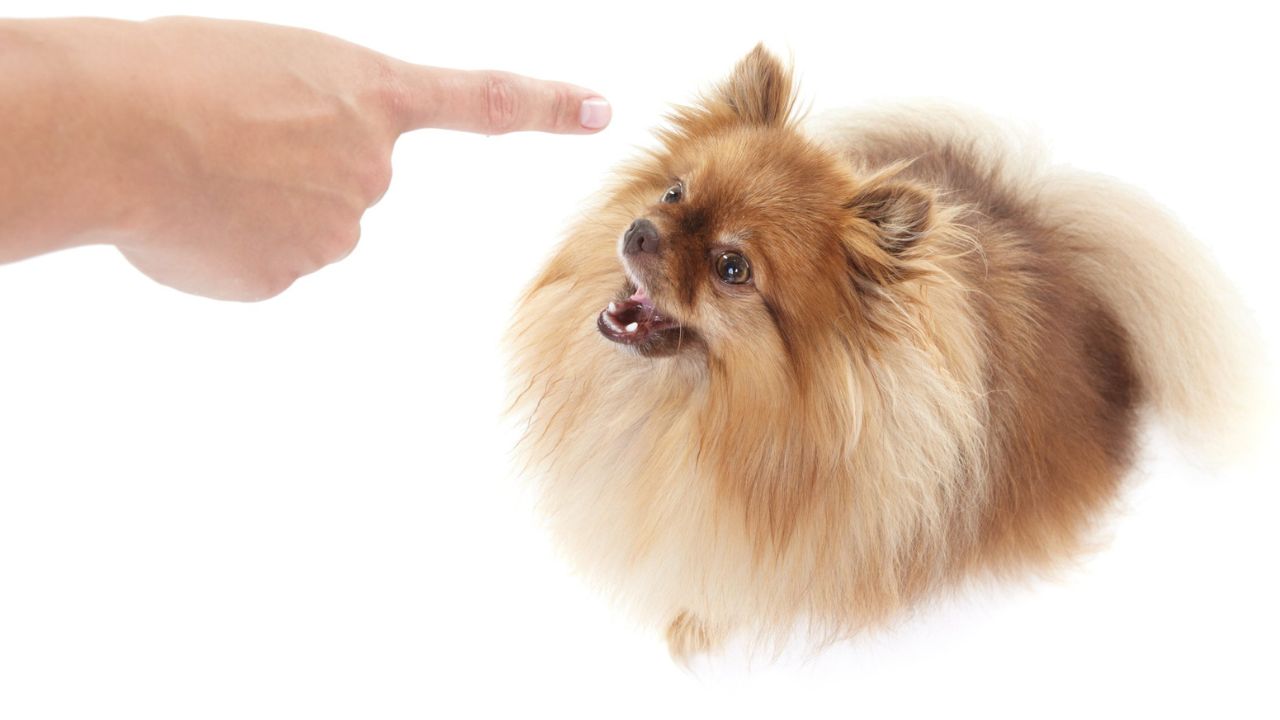Successful Pomeranian puppy training with our guide on curbing biting behavior. Explore gentle strategies to teach your furry friend bite inhibition and foster positive habits. Learn the importance of consistency and patience in the training process.
Discover expert tips to create a safe and enjoyable environment for your Pomeranian, ensuring a well-behaved and happy companion. Say goodbye to puppy biting challenges as you embark on a journey to build a strong bond with your adorable Pomeranian.
Pomeranian Behavior
Train a Pomeranian Puppy Not to Bite, Before we dive into training techniques, it’s essential to understand why Pomeranian puppies bite. Puppies explore their surroundings using their mouths and teeth like human infants do. In addition to this instinct, Pomeranians are known to have a strong prey drive, which can contribute to biting behaviour. It’s crucial to address this behaviour early to prevent it from becoming a habit or a potential issue in the future.
Start with Socialization
Socialization is a critical aspect of training any puppy, including Pomeranians. Exposing your puppy to various people, animals, environments, and situations can help them become well-rounded and confident dogs. Socialization also plays a significant role in reducing biting behaviour.
Introduce your Pomeranian puppy to different people, including friends, family members, and strangers, ensuring they have positive experiences with each encounter. Similarly, expose them to other vaccinated and friendly dogs to learn appropriate canine behaviour. Gradually increase the complexity of your puppy’s situations, such as introducing them to new places and experiences.
Teaching Bite Inhibition

Bite inhibition is teaching your Pomeranian puppy to control the force of their bites. This skill is crucial as it allows your dog to understand how to play gently without causing harm. Start by offering gentle feedback whenever your puppy bites too hard.
When your puppy bites you, let out a high-pitched yelp to mimic the sound another puppy would make if bitten too hard. This will startle your puppy and make them stop biting. After yelping, withdraw your attention and ignore your puppy for a few seconds. This teaches them that biting leads to the end of playtime or attention.
If your Pomeranian continues to bite, you can try redirecting their behaviour. Offer them a chew toy or bone instead and encourage them to bite on that instead of your hands or clothes. Reward them with praise and treats when they chew on the appropriate objects.
Consistency and Positive Reinforcement
Consistency is key when training your Pomeranian puppy not to bite. Ensure that all family members and visitors follow the same rules and guidelines. If one person allows biting while others do not, it will confuse your puppy and hinder their progress.
Positive reinforcement is an effective method to encourage desired behaviour. Whenever your Pomeranian puppy refrains from biting or redirects their biting behaviour appropriately, reward them with praise, treats, or playtime. Positive reinforcement strengthens the bond between you and your puppy and motivates them to continue exhibiting good behaviour.
Provide Plenty of Exercise and Mental Stimulation
Pomeranians are energetic and intelligent dogs that require both physical exercise and mental stimulation. Engage in regular play sessions and provide them with toys that challenge their minds, such as puzzles or interactive feeding devices. Sufficient exercise and mental stimulation help alleviate excess energy and reduce the likelihood of biting due to boredom or frustration.
Seek Professional Help if Needed
Seeking professional assistance from a qualified dog trainer or behaviourist may be beneficial if your Pomeranian puppy’s biting behaviour continues despite regular training efforts. They can evaluate the circumstances and offer tailored advice to address underlying problems causing the biting behaviour.
Additional Tips for Training a Pomeranian Puppy Not to Bite
Train a Pomeranian Puppy Not to Bite, In addition to the techniques mentioned earlier, you can incorporate a few more strategies into your training routine to help curb biting behaviour in your Pomeranian puppy. Here are some additional tips:
1. Use Timeouts: If your Pomeranian puppy persists in biting despite your efforts to redirect their behaviour, you can use timeouts as a form of correction. When your puppy bites too hard, firmly say “no” or “ouch” and immediately remove yourself from their presence for a short period. This teaches them that biting leads to loss of attention and playtime.
2. Be Mindful of Playtime Intensity: Pomeranians love to play, but sometimes their excitement can escalate into biting behaviour. Monitor the intensity of play sessions, and if your puppy becomes overly enthusiastic and starts biting, take a short break to calm them down. Set boundaries and establish clear signals to help them understand when playtime is getting too rough.
3. Provide Appropriate Chew Toys: Puppies naturally urge to chew, especially during teething. Providing a variety of safe and durable chew toys gives your Pomeranian puppy an appropriate outlet for their chewing needs. Make sure the toys fit your puppy’s size. And rotate them regularly to keep things interesting.
4. Avoid Rough Play: Rough play can encourage biting behaviour in puppies. Refrain from engaging in games that involve wrestling or tugging, as these activities can inadvertently reinforce biting. Instead, focus on interactive games that promote gentle play, such as fetch or hide-and-seek.
5. Stay Calm and Patient: It’s important to remain calm and patient throughout training. Puppies pick up on our emotions, which may hinder their progress if they become frustrated or angry. Recall that consistency is essential and that training takes time. Celebrate small victories and acknowledge your puppy’s efforts, even if progress seems slow.
6. Seek Socialization Opportunities: Regularly expose your Pomeranian puppy to different environments, sounds, and experiences. This helps them become familiar with various stimuli and reduces the likelihood of fear-based aggression or biting. Take your puppy on walks, introduce them to different surfaces, and expose them to new sounds in a controlled and positive manner.
7. Avoid Harsh Punishments: Refraining from using physical force or harsh punishments when training your Pomeranian puppy is crucial. Physical corrections can lead to fear and anxiety, which may exacerbate biting behaviour. Instead, focus on positive reinforcement and redirection techniques to encourage appropriate behaviour.
8. Be Consistent with Training: Consistency is paramount when training your Pomeranian puppy not to bite. Set clear boundaries and enforce them consistently. Train a Pomeranian Puppy Not to Bite, Ensure that everyone in the household follows the same training methods and reinforces the same rules. This will help your puppy understand what is expected of them and minimize confusion.
Stopping Pomeranian Puppy Biting and Growling

- Say “NO!” loudly and firmly.
- Move into an authoritative position. For example, if you’re both sitting on a sofa, put him on the floor. If you stand up or sit on a chair, if both are seated on the floor, stand the one in charge, and you’re demonstrating this physically.
- Ignore your puppy 100%! Make sure everybody in the house does the same. If they don’t do it, he’ll go to somebody else if you don’t let him play with you. Nobody can speak to him, look at him, or even flinch if he barks or whines. Please don’t talk to each other for the brief ban, so he doesn’t think you’re talking to him.
- This period can last 1-10 minutes, as it can take long before he realizes he has been banned from receiving your attention. Once he does understand, he may whine, walk around or bark, indicating that your treatment is working.
- After five minutes, turn and speak to him, but don’t touch or pick him up.
- Once another minute has passed, and he doesn’t try to nip you, please move to the same position you were in when he nipped you.
- Don’t act happy, but be yourself. If he doesn’t nip you, then get a little excited, pet him and praise him.
- If he nips again at any time, reposition yourself, and the household needs to banish him again.
- You should repeat this process four or five times before he associates banning with nipping.
- If he persists and constantly nips at your ankles, place him in the gated area for some “time out.”
Conclusion
Train a Pomeranian Puppy Not to Bite, Training a Pomeranian puppy not to bite requires patience, consistency, and positive reinforcement. You can effectively redirect their biting behaviour by socializing your puppy, teaching bite inhibition, providing consistent guidelines, and offering plenty of exercise and mental stimulation. Remember, it’s important to start training early and seek professional help if needed. You can teach your Pomeranian puppy to become a well-behaved and delightful companion with time and effort.
FAQ
How Do You Train a Pomeranian Dog?
Train a Pomeranian Puppy Not to Bite, Regardless of how comfortable you feel about Pomeranian dog training, talk as though you know exactly what you’re doing and what you expect from your Pom. Use a firm, friendly tone and articulate everything you say as clearly as possible. Make sure you have a joyful voice when you praise your dog.
What Books Do You Need to Train a Pomeranian Puppy?
Training a Pomeranian is the must-have book for all Pomeranian parents. How to train a Pomeranian puppy. Start your new puppy off on the right paw. Basic Pomeranian training for owners and puppies. How to toilet train a Pomeranian puppy and older Pomeranians. Pomeranian potty training Housebreaking fundamentals.
Can Pomeranians Be House Trained?
Pomeranians are intelligent little dogs that can be house-trained like any other dog. However, Pomeranians are special because they can be trained to go outside, use puppy pads, or even use a litter box. While house training your Pomeranian, it is important to be consistent and patient.
When Should You Start Pomeranian Obedience Training?
Train a Pomeranian Puppy Not to Bite, Pomeranian obedience training should be started as soon as possible to ensure that your eight-week-old puppy, or even your fifteen-year-old senior dog, can learn. Life will be easier because you can communicate your needs to your dog and vice versa.

